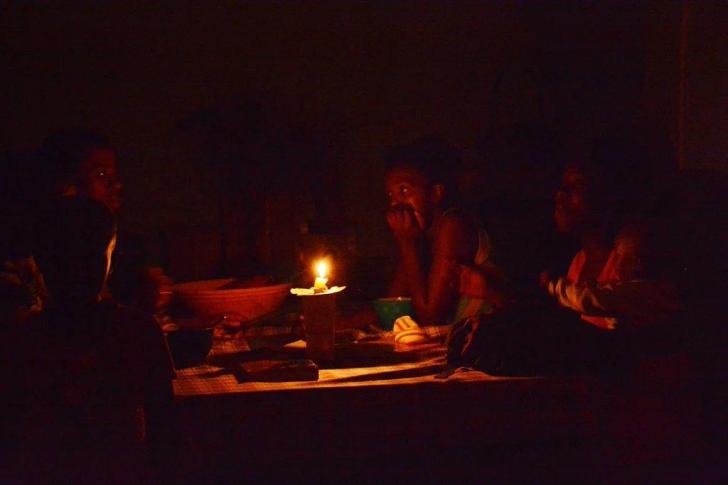News / National
No end in sight to Zimbabwe's electricity crisis
5 hrs ago | Views

Zimbabwe is currently grappling with a severe energy crisis, characterized by daily load-shedding lasting up to 16 hours. Meanwhile, neighboring Zambia remains cautiously optimistic about easing its power outages by August 2025, highlighting contrasting trajectories for the two countries sharing the critical Kariba hydropower resource.
The government has attributed Zimbabwe's electricity shortages primarily to the El Niño-induced drought, which has drastically lowered water levels at the Kariba Dam - a vital source of hydroelectric power for both Zimbabwe and Zambia.
Selusiwe Moyo, Public Relations and Communications Manager for the Zambezi River Authority (ZRA), explained that water allocations to both countries remain constrained due to depleted reservoir levels.
"Our immediate focus is on rebuilding the dam's reservoir levels, which were critically depleted by drought," said Moyo. "Only after stabilisation can we sustainably increase water allocation to both Kariba North and Kariba South power stations."
In response to the crisis, ZRA increased Zambia's water allocation to 13.5 billion cubic metres in 2025, up from 8 billion cubic metres in 2024. This increase has fueled cautious optimism from Zesco Limited, Zambia's state power utility.
Speaking at a media briefing at the Kariba North Bank Power Station, Zesco senior manager Christopher Singogo acknowledged the fragile situation but pointed to encouraging signs.
"With higher water inflows and improved resource management, we are hopeful of reducing the intensity of load shedding by the third quarter," Singogo said.
He noted that recent gains in reservoir levels, coupled with power imports, are helping ease the strain on electricity generation.
Meanwhile, Zambia's private sector is pushing for greater involvement in addressing the energy crisis. The Zambia National Marketers Credit Association (ZANAMACA) has urged stakeholders to diversify energy sources beyond hydropower.
"This is not just Zesco's problem; it is a national crisis that needs all hands on deck — especially from the private sector," said ZANAMACA president Mupila Kameya. "It's time we move beyond dependence on hydropower and invest in solar and alternative energy sources."
While Zambia manages its energy crisis through measured electricity generation and long-term hydropower development plans, Zimbabwe's energy sector continues to face significant hurdles, with prolonged outages threatening economic activities and daily life.
As the region battles the impacts of climate variability, the need for diversified and sustainable energy solutions has never been clearer.
The government has attributed Zimbabwe's electricity shortages primarily to the El Niño-induced drought, which has drastically lowered water levels at the Kariba Dam - a vital source of hydroelectric power for both Zimbabwe and Zambia.
Selusiwe Moyo, Public Relations and Communications Manager for the Zambezi River Authority (ZRA), explained that water allocations to both countries remain constrained due to depleted reservoir levels.
"Our immediate focus is on rebuilding the dam's reservoir levels, which were critically depleted by drought," said Moyo. "Only after stabilisation can we sustainably increase water allocation to both Kariba North and Kariba South power stations."
In response to the crisis, ZRA increased Zambia's water allocation to 13.5 billion cubic metres in 2025, up from 8 billion cubic metres in 2024. This increase has fueled cautious optimism from Zesco Limited, Zambia's state power utility.
Speaking at a media briefing at the Kariba North Bank Power Station, Zesco senior manager Christopher Singogo acknowledged the fragile situation but pointed to encouraging signs.
He noted that recent gains in reservoir levels, coupled with power imports, are helping ease the strain on electricity generation.
Meanwhile, Zambia's private sector is pushing for greater involvement in addressing the energy crisis. The Zambia National Marketers Credit Association (ZANAMACA) has urged stakeholders to diversify energy sources beyond hydropower.
"This is not just Zesco's problem; it is a national crisis that needs all hands on deck — especially from the private sector," said ZANAMACA president Mupila Kameya. "It's time we move beyond dependence on hydropower and invest in solar and alternative energy sources."
While Zambia manages its energy crisis through measured electricity generation and long-term hydropower development plans, Zimbabwe's energy sector continues to face significant hurdles, with prolonged outages threatening economic activities and daily life.
As the region battles the impacts of climate variability, the need for diversified and sustainable energy solutions has never been clearer.
Source - online

























